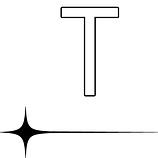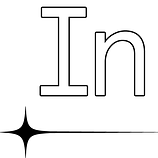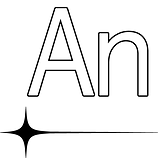What If Jobless U.S. Workers Were Hired to Fight Coronavirus?
Last Mile Health CEO Raj Panjabi argues community health workers are a win-win for fighting Covid-19
 There are more than 200,000 confirmed cases of Covid-19 reported worldwide as of March 19. Continued sharp increases in infections may overwhelm health systems in any country, but especially places that are facing shortages of nurses, doctors, and other frontline health providers. The pandemic is also dealing an economic blow. People across America and around the world are losing their jobs as requirements to cancel large gatherings of people, social distance, or shelter in place make it impossible for many businesses to continue. Earlier this week it was reported that the pandemic could drive up unemployment to 20%, a rate not seen since the Great Depression, leaving 32 million Americans without a job. In New York, the state’s unemployment website temporarily crashed when the number of unique users rose fivefold in a day.
There are more than 200,000 confirmed cases of Covid-19 reported worldwide as of March 19. Continued sharp increases in infections may overwhelm health systems in any country, but especially places that are facing shortages of nurses, doctors, and other frontline health providers. The pandemic is also dealing an economic blow. People across America and around the world are losing their jobs as requirements to cancel large gatherings of people, social distance, or shelter in place make it impossible for many businesses to continue. Earlier this week it was reported that the pandemic could drive up unemployment to 20%, a rate not seen since the Great Depression, leaving 32 million Americans without a job. In New York, the state’s unemployment website temporarily crashed when the number of unique users rose fivefold in a day.
What if Americans who are unemployed by the pandemic could be hired to fight it? In the United States and around the world, local residents without a medical or nursing degree have been rapidly trained, hired, and equipped to respond to other epidemics that have spiraled out of control.
 In the 1950s, an epidemic of another severe respiratory illness — tuberculosis — was widespread in the state of Alaska. One out of every 30 Alaskans was in a tuberculosis hospital. Across Alaska’s tundra, sick people lived in fishing communities sometimes hundreds of miles from each other and out of reach of the limited doctors in the state.
In the 1950s, an epidemic of another severe respiratory illness — tuberculosis — was widespread in the state of Alaska. One out of every 30 Alaskans was in a tuberculosis hospital. Across Alaska’s tundra, sick people lived in fishing communities sometimes hundreds of miles from each other and out of reach of the limited doctors in the state.
Around the world, community health workers are humanity’s soldiers in our war against epidemics.
Help came from an unexpected place: the neighbors of tuberculosis patients. Alaska Native women, most without a high school degree, were hired and trained by nurses and doctors in their own villages as so-called community health workers. Within a few weeks, they learned to administer medications for latent tuberculosis to their sick neighbors, monitoring for complications and side effects. Remotely supervised by licensed providers like nurses over radio, Alaska’s community health workers (now part of the statewide Community Health Aide Program) helped bring the epidemic under control.
Around the world, community health workers are humanity’s soldiers in our war against epidemics. Globally, there is a massive health worker shortage, forecast to grow to 18 million by 2030. Poor countries like Liberia, where I grew up, face the greatest gaps. After I fled Liberia’s civil war as a child and arrived in the United States as a refugee, I had the chance to go to medical school. When I returned to Liberia as a medical student in 2005, I was shocked to find that the country was left with only 51 doctors to serve 4 million people. To put that in perspective, consider if San Francisco, now on lockdown due to widespread coronavirus, had only eight to 10 doctors to serve the entire city. Compounding the health care gap was massive unemployment — as high as 85%.
To tackle the dual burden of inaccessible health care and insufficient jobs, Last Mile Health, the nonprofit I co-founded in 2007, adapted Alaska’s approach. For more than a a decade, we have collaborated with the Liberian government and partners to hire, train, and equip thousands of community health workers.
Mardea Sinoe, a 20-year-old who rose to be salutatorian of her middle school, was later forced to drop out because her family couldn’t afford to send her to the high school six hours from her village. As a young woman, Mardea couldn’t find a job. But three months ago, Liberia’s Ministry of Health, with support from Last Mile Health, hired her as a community health worker. Over a few weeks, a nurse trained Mardea, equipped her with medicine and supplies, and gave her a smartphone with video lessons on topics like assessing a child for malnutrition. Mardea now serves the daily health needs of her neighbors. When a patient has a condition Mardea can’t care for, she works with outreach nurses to refer her to a network of clinics and hospitals.
Earlier this month, I visited Mardea, who took me on a walk in her village to see one of her patients. She had previously diagnosed a two-year-old boy with malaria — an epidemic that kills nearly 500,000 people every year because they are out of reach of clinics. When the boy fell violently ill with vomiting and fever, his mother rushed him to Mardea’s doorstep. As I saw the boy comfortable and eating peanuts in the bent elbow of his mother’s arm, it was clear the antimalarial medicines that Mardea administered had started to heal him and possibly saved his life.
 An epidemic anywhere can be a threat to people everywhere. That’s true now with Covid-19, and it was true in 2014, when the Ebola virus was spreading like wildfire across Liberia and West Africa. At that time, scientists projected the virus could infect more than 1 million people — and the majority of them would die — if nothing more was done. When Ebola threatened to bring us to our knees, community health workers did not surrender to fear. They did what they had always done: They answered the call to serve their neighbors. Community health workers teamed up with outreach nurses to go door-to-door to prevent virus transmission through promoting hand-washing and social distancing. They learned the signs and symptoms of Ebola and helped detect patients. And they helped respond by encouraging Ebola patients to seek care early at hospitals.
An epidemic anywhere can be a threat to people everywhere. That’s true now with Covid-19, and it was true in 2014, when the Ebola virus was spreading like wildfire across Liberia and West Africa. At that time, scientists projected the virus could infect more than 1 million people — and the majority of them would die — if nothing more was done. When Ebola threatened to bring us to our knees, community health workers did not surrender to fear. They did what they had always done: They answered the call to serve their neighbors. Community health workers teamed up with outreach nurses to go door-to-door to prevent virus transmission through promoting hand-washing and social distancing. They learned the signs and symptoms of Ebola and helped detect patients. And they helped respond by encouraging Ebola patients to seek care early at hospitals.
This same community-based strategy is critical once again in our global response to Covid-19. As cases grow exponentially, so does all this work to prevent, detect, and respond to the pandemic. Health care teams cannot keep up. Doctors, nurses, and officers in underfunded public health departments are overwhelmed by the tasks at hand. It might be time to share these tasks with others. We could rapidly expand our health care teams by investing in the people closest to the problem — hiring and training the millions of people put out of work by the epidemic.
This is happening now in Liberia, where previously unemployed residents like Mardea are working as community health workers to implement prevention and control measures like organizing social distancing and hand hygiene stations. To help detect cases, nurses are making plans to work with community health workers to identify signs and symptoms of Covid-19 among their neighbors, and the country is considering engaging community health workers to coordinate testing for people who may have Covid-19.
This same strategy could work in the United States, too. Here’s what the job description of a Covid-19 community health worker might look like:
1. Prevent
- Organize and carry out social media campaigns to promote social distancing and advocate for timely policies.
- Encourage strategies in their neighborhoods and online to promote mental and physical health and resilience.
- Deliver food and medications to the elderly, poor, immigrants, and other vulnerable residents.
- Make masks at home, and donate them to supplement the stock of personal protective equipment at local hospitals.
2. Detect
- Learn the signs and symptoms of Covid-19, and help staff hotlines run by hospitals and public health departments to answer questions from the public.
- Refer possible Covid-19 patients to their nearest testing center, and organize transportation.
3. Respond
- Call people with Covid-19 who are in self-isolation with mild symptoms, and monitor them for worsening symptoms.
- Provide moral support and organize food deliveries for people with Covid-19 at home.
- With nurse supervision, monitor patients for worsening symptoms and support rapid referral of people who require hospitalization.
- With public health officers, support contact tracing, symptom reporting, and monitoring of contacts of Covid-19 patients to ensure access to testing and treatment for people who develop signs and symptoms.
- Help hospitals and nonprofits raise funds for the most vulnerable.
How would they be trained?
The U.S. Centers for Disease Control and Prevention and state health departments can work with universities to develop rapid online programs to train the millions of Americans currently out of work in their own homes. Last Mile Health has launched similar online and mobile training programs globally.
Who would hire them?
State and city health departments can request funds from federal economic relief packages and philanthropies, and companies can support hospitals and nonprofits to hire them locally. After the Covid-19 pandemic is stopped, some of these individuals might return to jobs in their old industries. Others will find new careers in health care, such as home health aides or paramedics. If done right, the value of this investment could grow with time. Countries like Liberia, Ethiopia, and Malawi and states like Alaska have trained community health workers to address one epidemic only to redeploy them in subsequent epidemics.
Today’s Covid-19 community health workers could become our epidemic response corps of the future — always ready to help us fight the next epidemic.